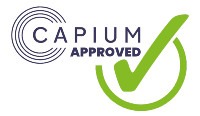Cloud Accounting for Small Businesses

1. Access Your Financial Data Anywhere, Anytime
One of the biggest benefits of cloud accounting is the ability to access your financial data from anywhere, at any time. With traditional accounting software, you’re often tied to a specific computer or location to access your data. But with cloud accounting, you can log in from any device with an internet connection and view your financial data in real-time. This makes it easy to stay on top of your finances, even when you’re on the go. Plus, it allows you to collaborate with your team and accountant in real-time, no matter where they are located.
2. Streamline Your Accounting Processes
Cloud accounting can help streamline your accounting processes by automating tasks such as invoicing, expense tracking, and bank reconciliations. This not only saves you time, but it also reduces the risk of errors and ensures that your financial data is accurate and up-to-date. With cloud accounting, you can also set up automatic reminders for payments and deadlines, so you never miss a payment or incur late fees. Overall, cloud accounting can help you run your small business more efficiently and effectively.
3. Reduce Costs and Increase Efficiency
Cloud accounting can help small businesses reduce costs and increase efficiency in many ways. By automating tasks and reducing the risk of errors, you can save time and money on manual bookkeeping processes. Additionally, cloud accounting allows you to access your financial data from anywhere, so you can work remotely or on-the-go without being tied to a physical office. With real-time data and automatic reminders, you can make informed financial decisions and avoid costly mistakes. Overall, cloud accounting is a smart investment for small businesses looking to streamline their operations and improve their bottom line.
4. Improve Collaboration and Communication
Cloud accounting also improves collaboration and communication within your business. With multiple users able to access the same data in real-time, you can work together seamlessly without worrying about version control or data discrepancies. Additionally, cloud accounting software often includes features like messaging and commenting, allowing team members to communicate and collaborate directly within the platform. This can save time and reduce the need for back-and-forth emails or phone calls. By improving collaboration and communication, cloud accounting can help your business run more smoothly and efficiently.
5. Enhance Data Security and Backup
One of the top benefits of cloud accounting for small businesses is enhanced data security and backup. With cloud accounting, your financial data is stored securely in the cloud, protected by advanced encryption and security measures. This means that even if your computer or physical storage device is lost, stolen, or damaged, your data is safe and accessible from any device with an internet connection. Additionally, cloud accounting software often includes automatic backups and data recovery features, ensuring that your data is always up-to-date and easily recoverable in case of any unexpected events. By providing enhanced data security and backup, cloud accounting can give you peace of mind and protect your business from potential financial losses.
Some popular Cloud Accounting for Small Businesses solutions
We can guide you through the process of switching to cloud accounting. We also provide 1 to 1 training and support for most popular cloud accounting for small business packages. Including, but not limited to Xero, Quickbooks, Sage, Kashflow and Capium.
Should you require advice on cloud accounting for small businesses then contact either Chris Jones or Natalie Williams.


